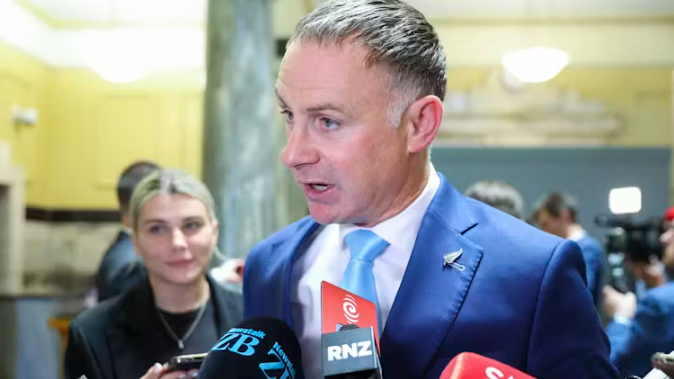China, the world’s largest emitter, and major fossil fuel exporters such as Iran, Russia and Australia, are among states that have updated their NDCs, but they have been criticised for lack of ambition.
Likewise, New Zealand, which announced in February it would commit to reducing emissions by 51%–55% below 2005 levels by 2035. This amounts to only 1%–5% above the country’s previous NDC of a 50% cut by 2030 and has been described as “underwhelming”.
This comes as UN Secretary-General Antonio Gutteres warned that humanity has failed to keep warming at 1.5°C and must change course urgently towards deeper and faster emissions cuts.
The Paris Agreement requires states to pledge successively more ambitious NDCs. Technically, New Zealand’s NDC represents a progression, albeit the smallest possible one.
It was criticised as insufficiently aligned with the Paris Agreement’s purpose to hold global average temperature rise well below 2°C above pre-industrial levels and to pursue efforts to keep it at 1.5°C.
Lack of climate ambition
Several domestic climate-related legal and policy changes are sending a message that New Zealand’s coalition government isn’t treating climate change as a high priority.
The Fast-track Approvals Act, which came into force at the end of 2024, has accelerated permits to explore and develop New Zealand’s petroleum and mineral resources (including metallurgical coal used in steel production), facilitating new fossil fuel use at home and abroad.
In August this year, the government passed the Crown Minerals Amendment Act 2025 to overturn a ban on offshore oil and gas exploration which had been in place since 2018. It also pledged NZ$200 million to co-invest in the development of new gas fields.
In October, the government lowered targets for methane emissions. This will require an amendment to the country’s flagship climate legislation, the Climate Change Response (Zero Carbon) Amendment Act 2019.
The previous target was to cut methane emissions from livestock by 25%–47% below 2017 levels, but the government has reduced this to 14%–24% and ruled out a methane tax on agricultural emissions. This is contrary to the Climate Change Commission’s recommendation to raise the target to 35%–47%.
New Zealand’s transport emissions continue to rise but the government axed a clean investment fund. And recently, it softened mandatory climate reporting requirements and lifted the threshold for how big a company needs to be before it has to report on its efforts to cut emissions.
There are some welcome developments, including the government’s NZ$46 million investment in a climate finance initiative in partnership with the United Kingdom.
The Transforming Island Development through Electrification and Sustainability (TIDES) fund will finance renewable energy projects in six Pacific Island countries – Fiji, Tonga, Samoa, Cook Islands, Vanuatu and Solomon Islands – that currently rely on imported energy. This will strengthen the Pacific region’s renewable energy options and reduce reliance on polluting and expensive diesel imports.
Also positive are government plans to double renewable energy by 2050 and to install 10,000 electric vehicle charging stations by 2030, although critics point out little progress has been made towards the latter.
But perhaps the clearest signal of the government’s move away from climate-conscious leadership is the decision in June this year to quit the Beyond Oil and Gas Alliance (BOGA). Established at COP26 in 2021, BOGA is an international coalition of states working to accelerate the managed phase-out of oil and gas production and support a just transition to clean energy.
Trade and climate commitments
Many of these moves have been defended as necessary to deliver on the government’s priority to build a stronger and more productive economy.
The government sees trade as crucial to this. It has heralded the free-trade agreement between the European Union and New Zealand as a successful catalyst for boosted trade, supporting 8% growth in two-way trade and reaching a record $21.6 billion of annual trade in goods and services since it came into force in May 2024.
But the EU-NZ free-trade agreement should also act as a reminder that international trade must go hand in hand with responsible action on climate change. The agreement commits both parties to:
effectively implement the UN Framework Convention on Climate Change and the Paris Agreement, including commitments with regard to nationally determined contributions and … to refrain from any action or omission that materially defeats the object and purpose of the Paris Agreement.
It also requires parties to:
promote the mutual supportiveness of trade and climate policies and measures, thereby contributing to the transition to a low greenhouse gas emission, resource-efficient and circular economy and to climate-resilient development.
The central aim of the Paris Agreement is to strengthen the global response to climate change by limiting global temperature rise. Government actions that loosen emissions targets and facilitate and invest in new fossil fuel use are contrary to this aim.
Consequently, such actions risk undermining the EU-NZ free-trade agreement and other agreements crucial to delivering on the government’s promise of economic growth.
As New Zealand’s representatives head to Brazil, they should have this trade-climate connection firmly in mind. Climate-attuned policies at home alongside stronger international commitments, including an ambitiously revised NDC, are necessary for limiting destructive climate change. They also make good economic sense.![]()
*Nathan Cooper, Associate Professor of Law, University of Waikato.
This article is republished from The Conversation under a Creative Commons license. Read the original article.

We welcome your comments below. If you are not already registered, please register to comment
Remember we welcome robust, respectful and insightful debate. We don't welcome abusive or defamatory comments and will de-register those repeatedly making such comments. Our current comment policy is here.